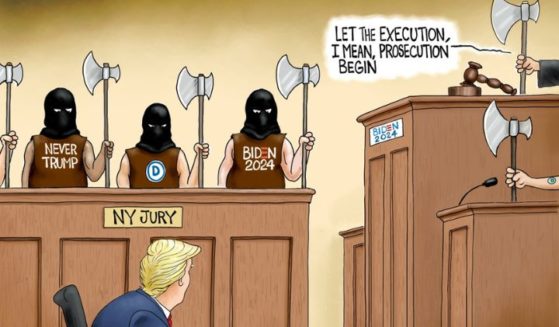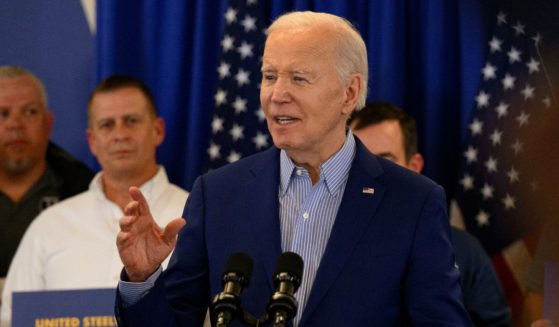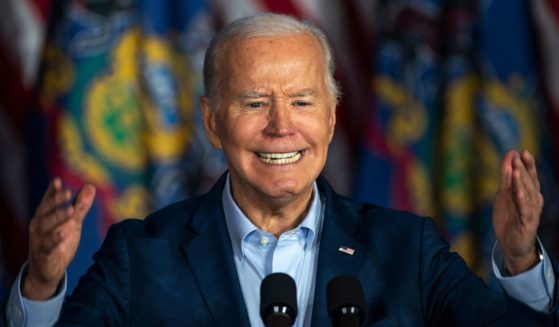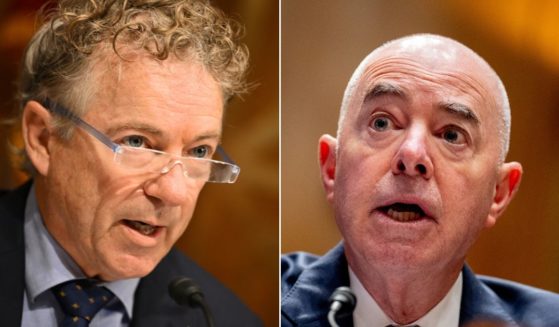The Biggest Threat to Football? It Could Be Insurance
Imagine for a moment that you’re an actuary at a big insurance company. It’s your job to make sure that your company isn’t taking insane risks that could lead to massive payouts far in excess of even the most confiscatory premium you can squeeze those high-risk customers for.
Now imagine someone comes to you with a proposition that involves your company insuring against liability an organization sanctioning a spectacle that routinely leads to chronic injury, one whose participants face a very real risk of brain damage and even death.
You would, and possibly in these exact words, tell that person to get stuffed.
Welcome to the newest threat facing the future of the sport of American football.
A January report from ESPN’s Steve Fainaru and Mark Fainaru-Wada, who cited multiple sources, reveals that the NFL “no longer has general liability insurance covering head trauma.”
Only one insurer, which the authors did not name, remains willing to cover the NFL for workman’s compensation.
This is down from at least a dozen carriers who were fine with assuming the financial risks of football as recently as 2011, when the concussion controversy became a far bigger issue within the sport.
Making matters worse, this isn’t just an NFL problem. Other football-related business are finding themselves similarly in trouble as their insurers pull out, leaving them open to financial ruin in as much time as it takes for a football player to take a slobber-knocker of a helmet-to-helmet hit and suffer a bad concussion.
“Pop Warner Little Scholars, which oversees 225,000 youth players, was forced to switch insurers after its longtime carrier, a subsidiary of the insurance giant AIG, refused to provide coverage without an exclusion for any neurological injury,” ESPN noted.
As insurance riders go, that’s right up there with expecting a homeowner to buy flood insurance that doesn’t cover storm-related damage.
Pop Warner’s executive director, Jon Butler, was reduced to the-end-is-nigh rhetoric when facing the reality of a football world without a financial backstop.
“People say football will never go away, but if we can’t get insurance, it will,” Butler has said to his colleagues, according to ESPN.
Dr. Julian Bailes, Pop Warner’s medical director, likewise told ESPN that “insurance coverage is arguably the biggest threat to the sport.”
It’s not just the NFL. The new Alliance of American Football has debuted by sailing straight into the headwinds that threaten to sink the sport.
The Orlando Apollos are stuck practicing in Georgia because the state of Florida does not extend worker’s compensation coverage to professional athletes.
That in and of itself is not specifically an insurance problem, but other Florida teams, like the NBA’s Orlando Magic and MLB’s Miami Marlins, haven’t had issues finding companies that will insure them.
“The insurance market covering both professional football and start-up companies is limited,” Alliance Head of Player Operations David Cohen told the Orlando Sentinel. “Established sports organizations have long-standing relationships with carriers. We are continuing to aggressively pursue workers’ compensation coverage that allows our Orlando team to be Florida employees and practice in Florida the entire season.”
The insurance problem adds yet another layer to the ongoing threat to the sport that starts long before a fall Sunday.
Less youths are playing the sport, as parents weigh the risks of brain damage to their children and conclude that their kids can play lower-contact sports instead.
And for those parents who aren’t swayed by the concussion arguments, the potential difficulty in obtaining health insurance for their kids might alter their perception of whether football is even worth the risk.
All of this ultimately adds up to a decreased talent base for the NFL, a sport where 32 teams maintain 53-man rosters that must be frequently replenished, as the average career length is only between three and four years.
Alex Fairly, CEO of the Amarillo, Texas-based company The Fairly Group, which advises the NFL and MLB on risk management, put it simply.
“Basically, the world has left the marketplace,” he told ESPN. “If you’re football, hockey or soccer, the insurance business doesn’t want you.”
“Overall, I think that there is a real threat to the viability of contact sports,” William Primps, an insurance lawyer and former Yale running back, said in November during the Casualty Actuarial Society convention in Las Vegas.
This is the new reality we live in. You can — plenty of people have — raise the argument that the connection between football and traumatic brain injury is overblown.
But from the insurance companies’ point of view, it’s a simple matter of expenses minus premiums equaling losses.
“In Washington state, the family of a high school football player who suffered a catastrophic brain injury won a $5 million settlement after arguing that coaches violated the Lystedt Law, which prescribes protocols for handling head injuries,” ESPN reported. “The law has been replicated in all 50 states.”
The NFL might be able to spend the money to stay viable even without an insurance company willing to underwrite the sport’s risks.
But to your local Pop Warner chapter, or the city’s parks and rec department, or a high school or college, it may be easier to simply wash their hands of the hassle and the fear that something like the Washington case will wipe them out, and get the kids doing something safer like baseball or competitive video gaming instead.
Time will tell what happens to football, but the headwinds are kicking up once more.
Truth and Accuracy
We are committed to truth and accuracy in all of our journalism. Read our editorial standards.











